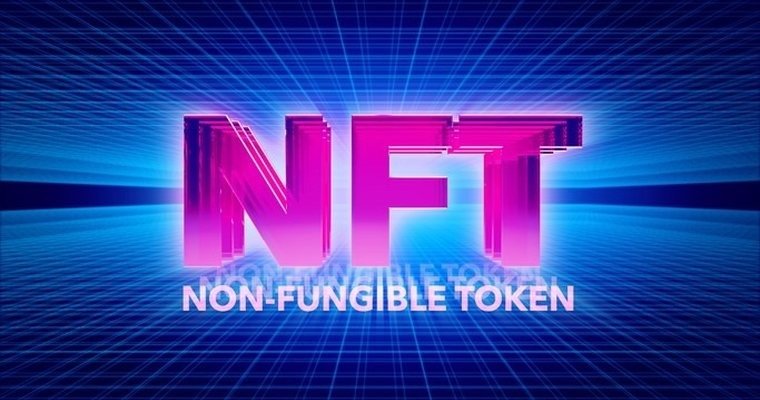Hugo McDonaugh, who introduced a vending machine that offers non-fungible tokens, sees a big future for NFTs and cryptocurrency, despite some recent crypto setbacks. Image provided by iStock.
Image provided by iStock.
Cryptocurrency has taken a big hit of late with the bankruptcy of the FTX crypto exchange, but one crypto entrepreneur that has brought crypto to the vending space believes the technology has a promising future.
Hugo McDonaugh, who introduced a vending machine that offers non-fungible tokens — a technology that enables physical assets to be sold using non-interchangeable units of data stored on a blockchain — shared his views in a Bloomberg podcast.
The podcast, “Would You Buy an NFT From a Vending Machine?” was moderated by Philip Lagerkranser, senior editor at Bloomberg News, and Bloomberg reporter Tanzeel Ahktar.
McDonaugh presented myNFT, an online marketplace for trading NFTs, using a vending machine at NFT.London at the Queen Elizabeth II Centre in London, U.K. in October.
“I think every single non-fungible asset in the world will have a token to represent its value, its authenticity, its trading capability…and so we wanted to be a part of that future or create something or system that would help make that a reality,” said McDonaugh, who launched myNFT in 2017.
He agrees crypto had “quite a year” in 2022.
“I think you have to look at it in the context of any sort of game-changing paradigm shifting technology that comes to the fore — how it works,” he said.
“Booms and busts and natural bubble cycles was a part of dotcom, was a part of the railroad in the U.S. It was a part of huge technology changes because of human behavior and excitement and these kinds of things.
“I think the thing that comes out of this is better for the industry. The uncertainty is taken out of the industry and more certainty gets put back in. People who want to build value get found and the capital begins to flow into those rather than the more speculative projects, and also it will pave the way for some form of…sensible regulation.”
The vending myNFT machine is an effort to make NFTs more accessible, he said.
The user pays 10 pounds ($12.07) and gets an NFT card from the machine. They scan the card and gain access to myNFT where they have access to a non-custodial cryptocurrency wallet. They can then buy and redeem NFTs that are automatically sent to their wallet.
MyNFT recruited artists to donate their works to the vending machine for the October London event. Buyers were able to buy these redeemable NFTs.
“Once they’re in your wallet, as the owner you can do what you like with it,” McDonaugh said. “You could resell it if you wish to. You could hold onto it forever. You could collect other pieces from that artist.”
There were some “hiccups” for the redemptions when the vending machine payment services provider couldn’t handle the volume, he said, “but we resolved them as time was going on.”
McDonaugh welcomed the fact U.K. government officials wanted to educate themselves about cryptocurrency.
He said a government report noted NFTs can represent property rights, adding the U.K. could create rules for the cryptocurrency space to allow innovation to flourish.
“I think you will have businesses with private blockchains. I think you’ll have big really decentralized public blockchains…I think that what you’ll end up happening is an Internet of blockchains.”
MdDonaugh looks forward to seeing users being able to move NFTs between blockchains.
“I think there’s going to be a lot of innovation around that multichain concept over the next few years.”
While there is a lot of NFT artwork available, he envisions more types of NFTs.
“At the end of the day it’s a digital deed, it’s a blank canvass in which you can program different kinds of value and different rules and so I think there’s a world where you’ll start seeing new kinds of assets that exist in the traditional world being tokenized as NFTs. I think it’s going to start happening. And that will bring more liquidity to these fairly illiquid markets, and I think that will be interesting.”
PopCom, an automated retail technology company specializing in vending and kiosk solutions, introduced a kiosk selling NFT artwork at NFT.NYC, a gathering of Web3 developers and followers in June.
Photo: LinkedIn.
Elliot Maras is the editor of Kiosk Marketplace and Vending Times. He brings three decades covering unattended retail and commercial foodservice.
Sign up now for the Vending Times newsletter and get the top stories delivered straight to your inbox.
Already a member? Sign in below.
or register now
Forgot your password?
You may sign into this site using your login credentials
from any of these Networld Media Group sites:


